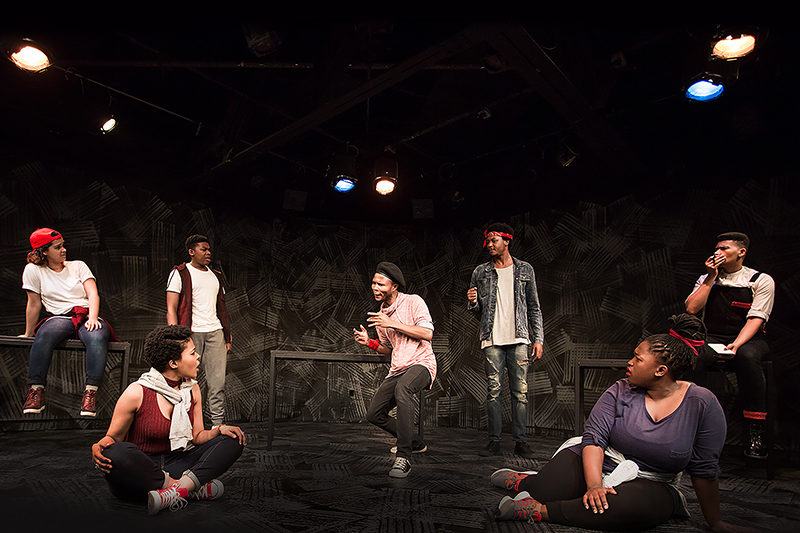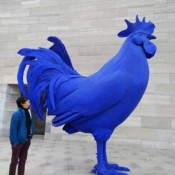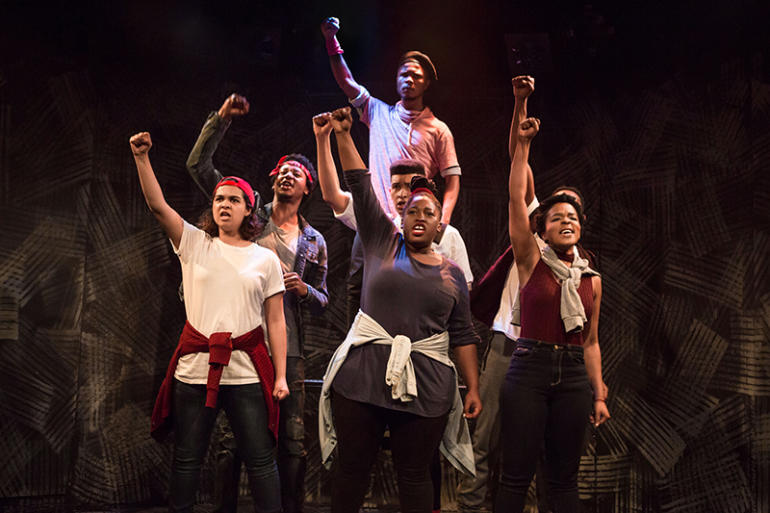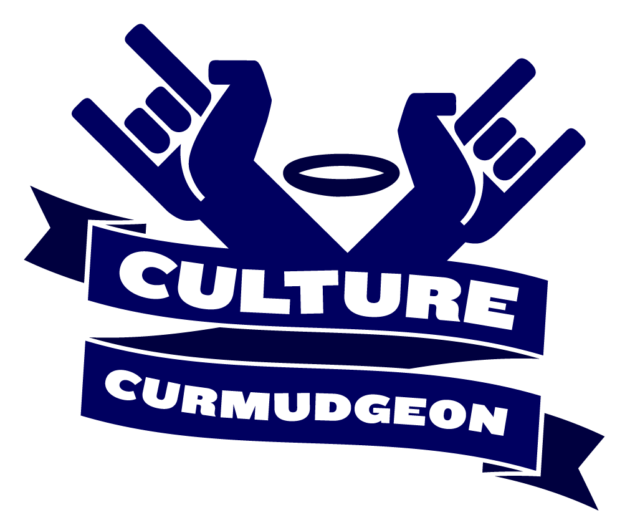“The Fall” is a 90 minute long burst of energy and emotion chronicling the rise of a student movement in South Africa’s University of Cape Town more than three years ago. Facilitated and directed by Clare Stopford, the production is playing at Washington D.C.’s Studio Theatre through November 25th.
While the production is ostensibly about the students’ fight to take down the statue of British imperialist Cecil B. Rhodes, its wider themes apply to the present-day incarnation of a divided America.
“The Fall” was written by seven students who were attending the University of Cape Town when the protests to demand the removal of Rhodes’ statue broke out in March 2015. It began as a movement meant to get rid of a monument widely seen as symbol of white supremacy and the inequities built into the country’s social and economic systems.
The protests quickly gathered momentum as most students threw their support behind what would be called the “Rhodes Must Fall” movement. Six weeks after the demonstrations began, the statue was removed.
Ahmad Coo is a producer and copy editor for the Global Business show on CGTN America. His analysis represents his views alone.
But rather than pacify the students, the university administration’s capitulation opened up the floodgates of activism. The students would go on to provide a boost to the wider “Fees Must Fall” movement, demanding a cut to tuition. Later that year, they would stage a sit-in in South Africa’s parliament to urge the government to make education free. That battle was partially won, as free education was offered to first-year university students in 2018 and will be gradually rolled in each subsequent year.
While “The Fall’s” source material is overtly political, the playwright’s’ approach of incorporating dance, spoken word, and skits helps the play avoid being too preachy or sounding like a college lecture. Instead, the cast skillfully brings to life the raw emotion, outrage, and cries for equality in South Africa.
The play could have neatly ended on the dismantling of Rhodes’ statue to highlight a significant civil rights victory for the students, but reality is a lot more complex. The students who wrote “The Fall” wanted to highlight the other challenges that they face besides South Africa’s institutionalized racism.
The production also tackled women’s rights, the lack of representation for LGBTQ and non-binary individuals, toxic masculinity, and the wealth/income gap. But rather than making the script incomprehensible, the push and pull between the cast members illustrated the complexity of the fight for civil rights. “The Fall” demands that everyone be given a voice, no matter how messy it gets.
“The Fall’s” message of intersectionality and inclusion resonates with the current political spasms rippling through the United States. Americans are also undergoing a historical reckoning of their own. Unfortunately, the divisiveness of the political rhetoric in the U.S. echoes South Africa’s colonial past.
But I believe the difference between the U.S. and South African experience lies in how the two countries have dealt with the divisions within their society, and “The Fall” shows why. The production is a reflection of South Africa’s political reality: It’s a fractured and messy, but the population is more engaged and willing to fight for the betterment of society.
In comparison, Americans are almost indifferent to the political reality they’re facing. As of this writing, the U.S. has just wrapped up voting in what some reports say is one of the ugliest election cycles in recent memory, thanks to race-baiting television advertising and racially charged speeches. The country is still bitterly divided.

(From L-R) Ameera Conrad, Zandile-Izandi Madliwa, Oarabile Ditsile, Sihle Mnqwazana, Sizwesandile Mnisi, Tankiso Mamabolo, Cleo Raatus Photo: Oscar O’Ryan
But as “The Fall” points out, South Africa is still operating mostly on a system that keeps the elite (mostly white) on top and the poor (and predominantly black) on the bottom. As long as it functions the same way, the institutionalized racism will stay. It’s a system that the play’s creators say they’ll continue to fight, regardless of how daunting the task is of trying to change a system that’s designed to keep most South Africans powerless.
Ditto for the U.S., which has been criticized for stacking the deck in favor of the rich and powerful and putting the poor at an economic and political disadvantage.
“The Fall’s” creators are still very much engaged in the fight for civil rights in South Africa but some members of the cast admit that the battle is taking a toll on their personal lives. That’s especially true for one of the cast members, Ameera Conrad, who identifies as a LGBT activist and queer Muslim.
“It’s exhausting,” Conrad said in a meet-the-cast session after the play, referring to her efforts to tell people about her experiences as a gay person of color trying to fight for her rights. “I didn’t want to constantly have to explain my views. Sometimes I just want to live my life.”
As she said those remarks, all the cast members nodded their agreement, all of them suddenly looking a little more worn and weary.
 CGTN America
CGTN America
 The cast of The Fall. Photo: Oscar O’Ryan
The cast of The Fall. Photo: Oscar O’Ryan

